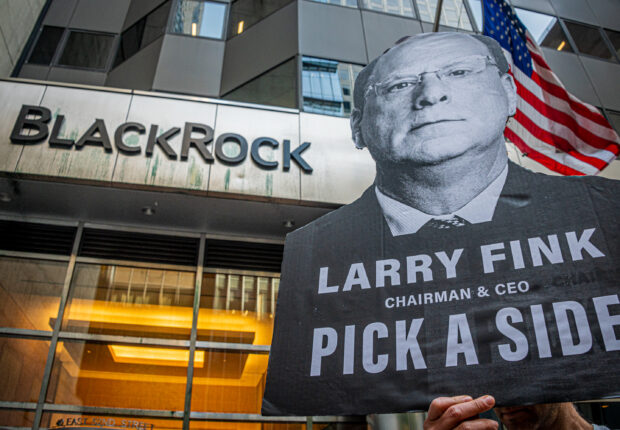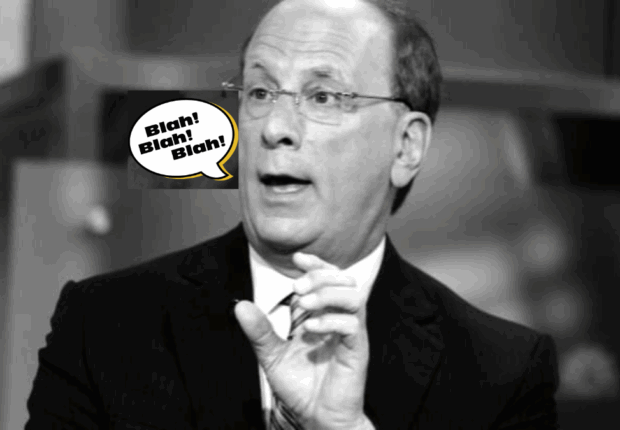Climate groups called on BlackRock and Vanguard to vote against Duke Energy Chair Lynn Good and Independent Director Michael Browning; both were re-elected with at least 88% of the vote… BlackRock and Vanguard have not said how they voted.
After Wells Fargo and Barclays, this may mark the third failure of BlackRock to keep its climate commitments this shareholder season.
In response to the re-election of Duke Energy board chair Lynn Good and Independent Director Michael Browning, the BlackRock’s Big Problem campaign released the following statements:
“As the two largest shareholders of Duke Energy, BlackRock and Vanguard should be transparent about how they voted today on Lynn Good and Michael Browning,” said Roberta Giordano, Finance Campaigner with the BlackRock’s Big Problem network. “BlackRock in particular has touted its commitment to climate stewardship and Duke is the second largest CO2 emitter in the US. If it didn’t vote against these board members today, its climate commitment must be questioned.”
“The more than doubling of investor opposition to Duke Energy’s top leadership speaks volumes, demonstrating that shareholders are tuned in to Lynn Good and Michael Browning’s failure to meet the moment on the climate crisis and racial injustice,” said Ben Cushing, Financial Advocacy Campaign Manager at the Sierra Club. “Vanguard and BlackRock together own approximately 15% of the company, yet they have been unwilling to publicly articulate where they stand on Duke’s incompetent leadership. The asset managers have paid lip service to the climate crisis and racial injustice in the past, but their lack of transparency today means they’ve failed to back that rhetoric with measurable action.”
ABOUT DUKE ENERGY:
- Duke Energy is the second largest emitter of climate-polluting carbon dioxide in the United States.
- It received an “F” grade in a recent Sierra Club analysis of its coal and gas fleet and plans for clean energy.
- Duke currently operates the largest coal fleet in the country and has plans to build the most fracked gas plants of any utility.
Duke Energy said that all board members were re-elected with at least 88% of the vote. Vanguard and BlackRock are the first and second largest shareholders of Duke, respectively, with a combined ownership share of nearly 15%. Neither company has stated how it voted today.
Why BlackRock? BlackRock is the largest asset manager in the world. As such, it has huge power and influence in major corporations – including major polluters and their funders. That influence can make or break climate action. BlackRock can use this power to fight climate change by voting out boards of directors at companies not acting fast enough on climate, and voting for shareholder resolutions that are critical for curbing the climate crisis.
Throughout the month of April, climate activists held demonstrations outside of BlackRock office locations in New York, San Francisco, Boston, Miami, Dallas, London, and Zurich, and will continue to do so. These actions included a giant eyeball projected onto BlackRock’s London offices. Over 80 people demonstrated at BlackRock’s headquarters in New York City. Photos from these actions are available here.
###
BlackRock’s Big Problem is a global network of NGOs, social movements, grassroots groups, and financial advocates that are pressuring asset managers like BlackRock to rapidly align their business practices with a climate-safe world.
Our network includes some of the most effective corporate campaigning groups in the US, UK, Europe, and around the world. We know that only by increasing pressure on customers, employees, peer companies, and in the media will these fossil fuel backers take the bold and visionary steps necessary to save humanity from the climate emergency.

